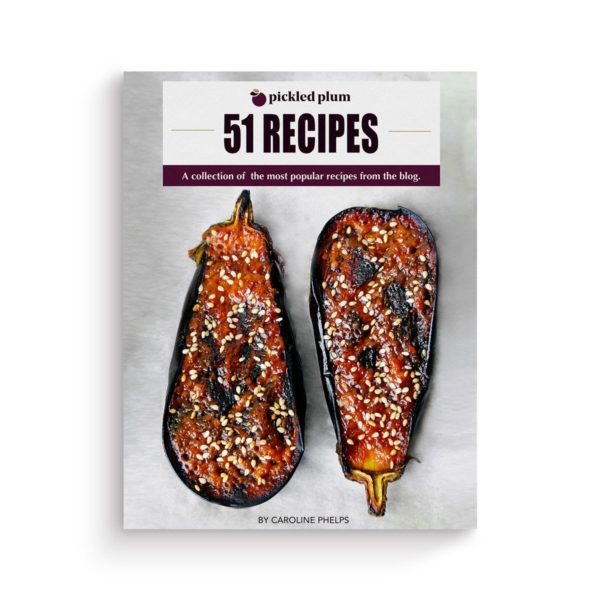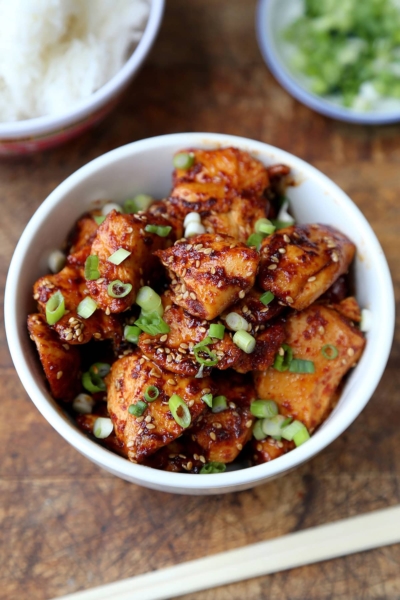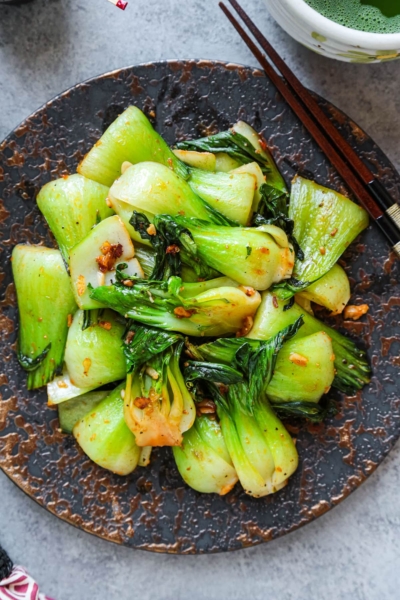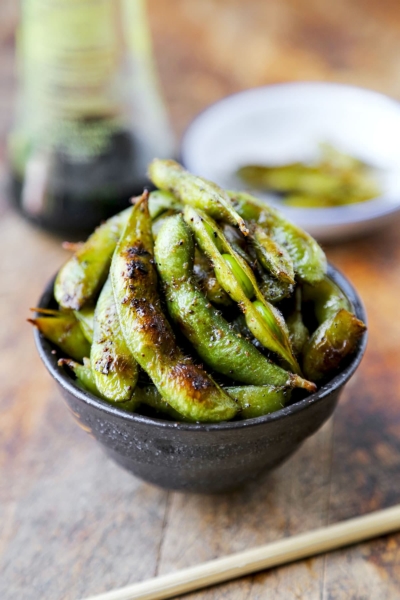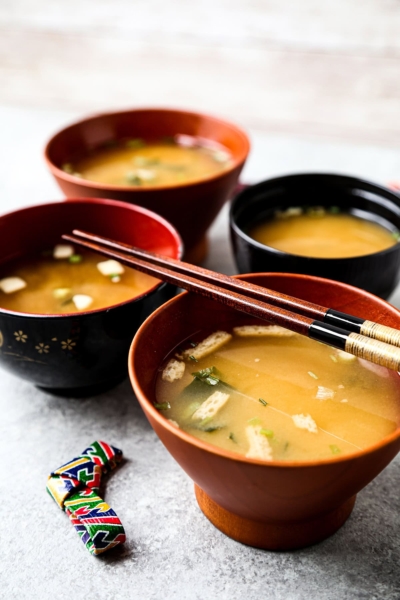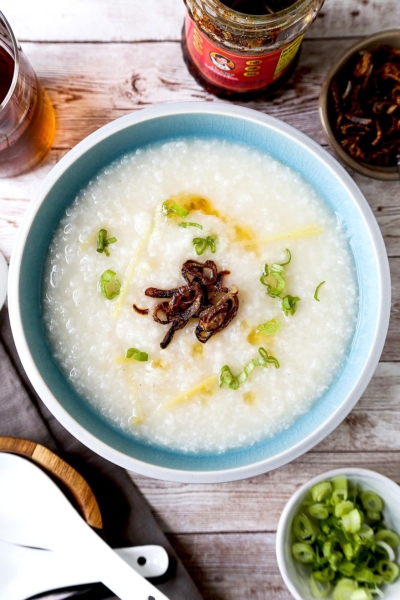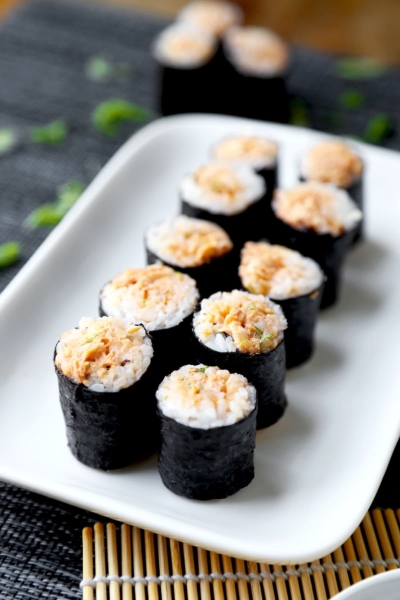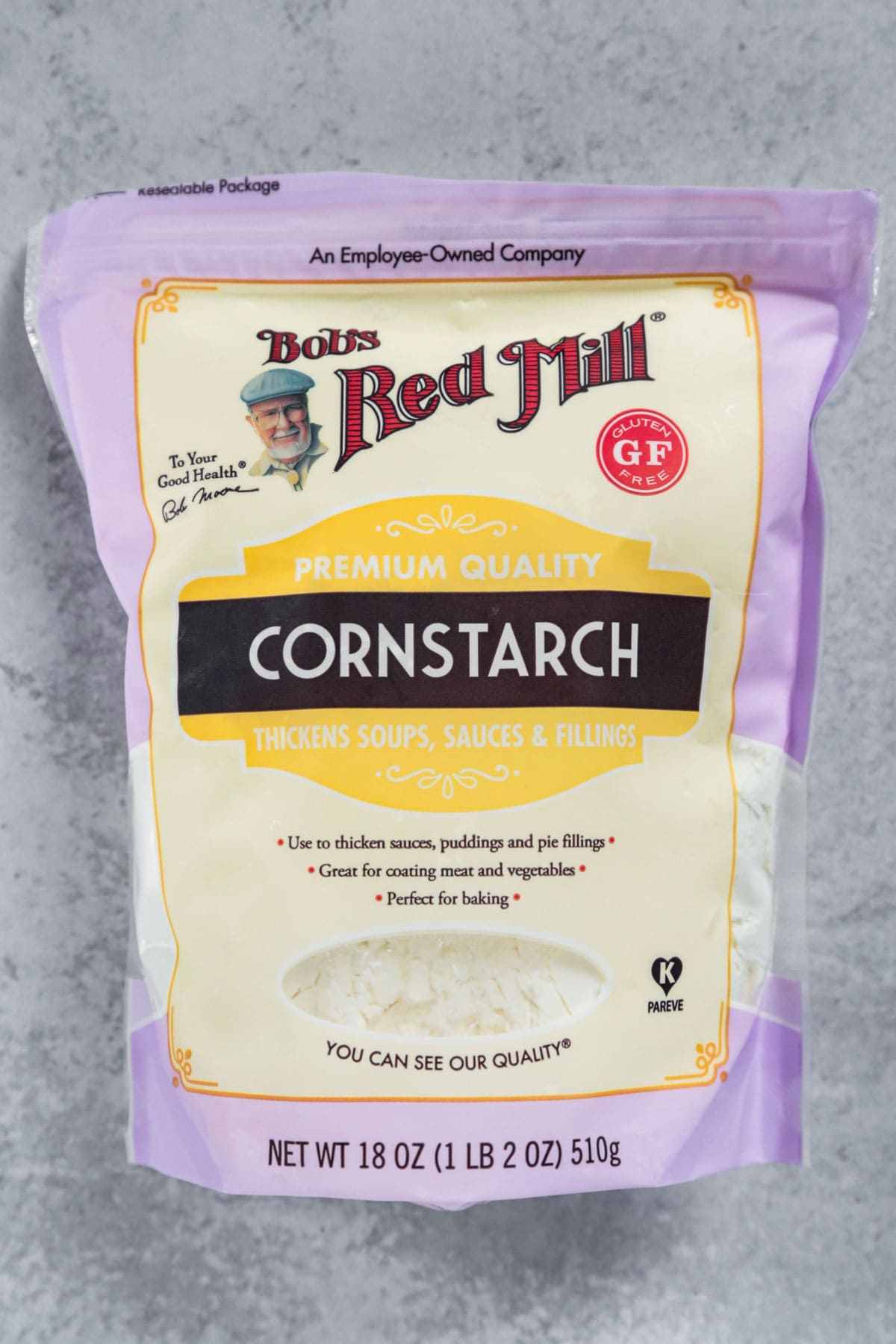
Table of contents
What Is Cornstarch?
Cornstarch is a white powdery substance that has many uses both in and out of the kitchen. Sometimes referred to as cornflour, the powder comes from extracting starch from the endosperm of corn kernels.
The starch is mostly used as a thickening agent. It is added to soups, stews, gravies, marinades, sauces, or even desserts, to thicken the end product. It can also be used as a breading on proteins to achieve a crispy texture.
The chalky white powder is a staple in many traditional Chinese dishes, often used in soups and sauces to give them a gooey texture. It’s also used in Japanese cooking, although potato starch is the preferred ingredient.

How To Use Cornstarch
Cooking with cornstarch is relatively simple. Since the fine powdery substance has little taste, it doesn’t impact the final flavor of the dish. As previously mentioned, it’s mostly used as a thickener or a breading. What is most important to know about using cornstarch is how and when to add it. If the cornstarch is not added correctly, it will be lumpy and not incorporated smoothly.
The best way to add cornstarch to your dish is with a slurry.
How to make a slurry – Measure the amount of cornstarch that you will need and combine it with a cold or room-temperature liquid (water, broth, or whatever the recipe calls for). Then, whisk the two ingredients together until the cornstarch dissolves into the liquid. It will then be ready to add to the rest of the dish.
The slurry needs to be added to a dish and heated to an almost boiling point to activate the cornstarch, which will then thicken. While it is cooling, the mixture will continue to thicken.
It can also be dusted onto tofu or other proteins to create a crispy texture. A simple coating of the fine powder is enough to create a perfectly crisp bite.
How To Cook With Cornstarch
Cornstarch is an ideal ingredient to keep in your pantry to thicken sauces, stews, and marinades. It is also an excellent way to crisp up tofu without a deep fryer.
Here are some of our favorite recipes using it:
- Honey sriracha tofu
- How To Make Crispy Tofu
- Sweet Chili Sauce
- Chinese Green Beans with Garlic Sauce
- Egg drop soup

Where To Buy Cornstarch
Cornstarch is widely available in most grocery stores or local markets. It is typically located in the baking aisle, near the flours. Or you can purchase it here on Amazon. A small amount goes a long way, so buying the powder in bulk is not necessary.
Storage
Cornstarch has a long shelf life and really doesn’t go bad as long as it is stored properly. Keep the cornstarch in a cool, dry place, in an airtight container. It is most important to keep the cornstarch away from any moisture, humidity, and extreme heat. The powder is made to absorb moisture, so if it is kept in the wrong environment, it will spoil.
Substitute
Because cornstarch doesn’t have a distinct flavor and is widely used for its thickening properties, there are many substitutes for the product that will help you achieve a similar goal. Potato starch is by far the best substitute. I swap one for the other all the time and never notice a difference. If you don’t have potato starch, you can use flour, arrowroot powder, rice flour, or tapioca starch. The texture will be slightly different, but close enough that the dish will still come out right.
Frequently Asked Questions
Yes it is naturally gluten-free. For those suffering from celiac disease, always double check that the cornstarch you are using is made in a facility that doesn’t share equipment used to manufacture other grains or grain product, which could result in cross-contamination.
While the two ingredients may have similar names, they are actually different products. Cornstarch is made from the starch of a corn kernel, while corn flour is yellow flour made from dried corn kernels.
